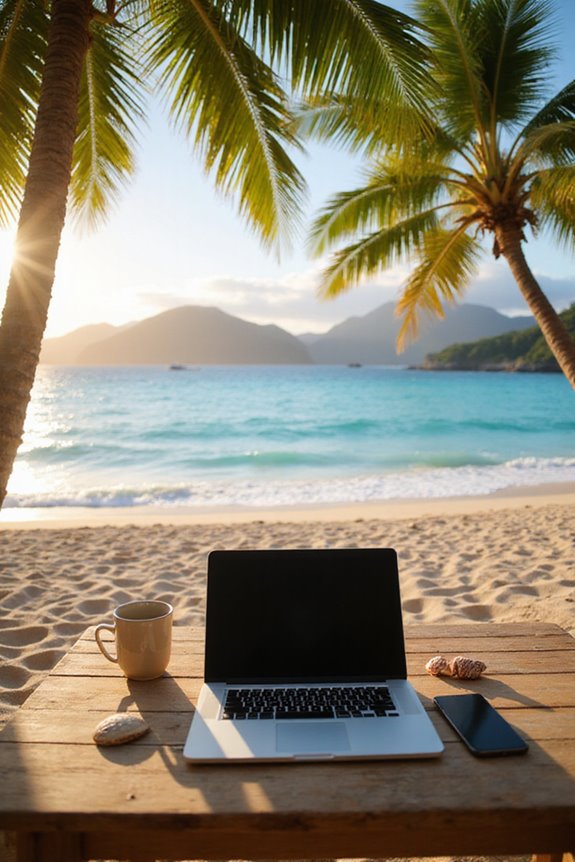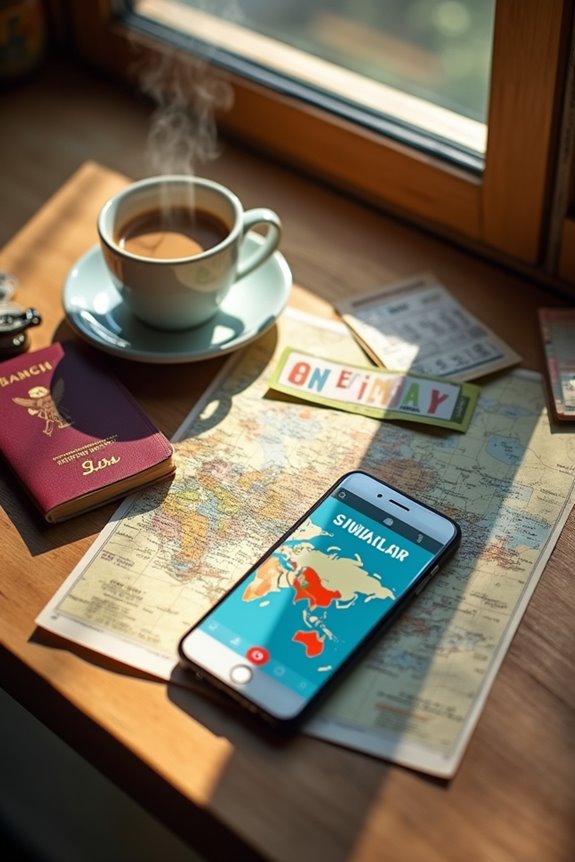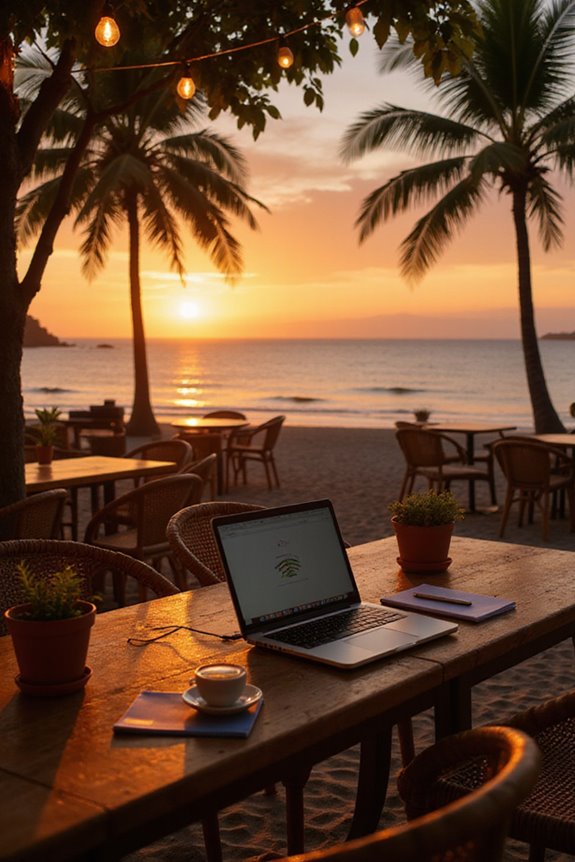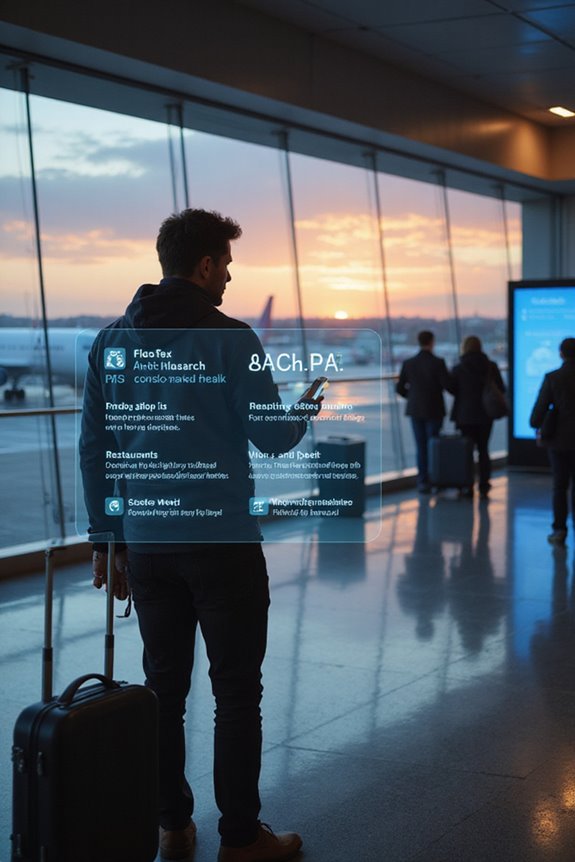When I’m traveling and hit a wall with blocked websites, I’ve got a few tricks up my sleeve. First, I love using VPNs—they mask my IP address, so I can access content as if I’m back home. Proxies are quick too, but not as secure. And let’s not forget mobile hotspots; they keep me connected even when hotel Wi-Fi is a flop! Stick around, and I’ll share more tips on staying online while you roam.
Key Takeaways
- Use a VPN to mask your IP address and securely access geo-blocked content while traveling.
- Consider proxy extensions for quick browser access to restricted websites.
- Utilize mobile hotspots to create a personal internet connection, especially with unreliable hotel Wi-Fi.
- Explore specialized browsers like Tor or Brave for enhanced anonymity and security while browsing.
- Stay vigilant on public Wi-Fi; avoid sensitive transactions and use VPNs to encrypt your data.
Understanding Website Blocks While Traveling
When I first traveled abroad, I remember the shock of trying to access my favorite websites only to be met with those dreaded “this content isn’t available in your region” messages. It felt like being locked out of my own digital world! I quickly learned that website blocking and regional censorship were the culprits behind it all. Countries like Argentina and the UK use various methods, like DNS and IP address blocking, to limit what we can see based on our location. It’s frustrating, especially when you just want to enjoy a movie or catch up on some shopping. These digital barriers create a sense of exclusion, making the internet feel smaller and more confined than it should be.
Effective Methods for Bypassing Restrictions
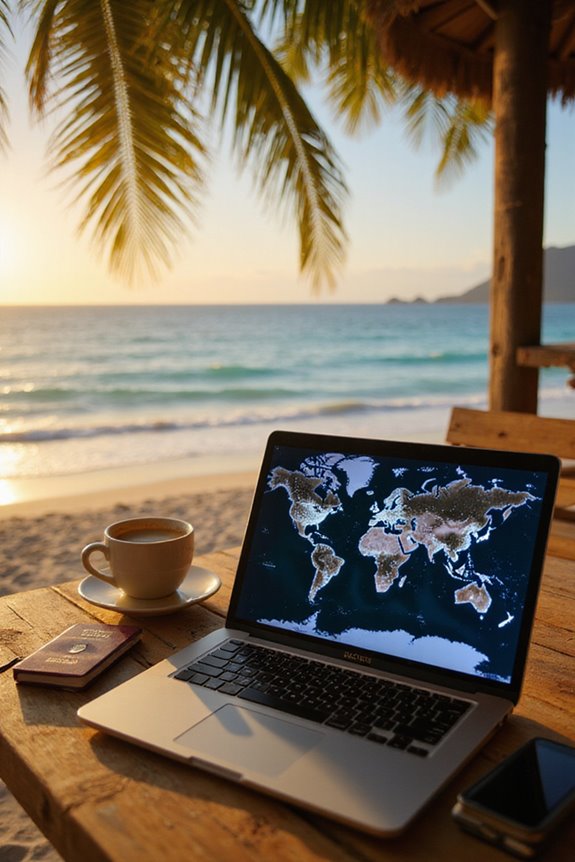
After realizing how frustrating it is to be blocked from my favorite sites, I was determined to find ways around those digital barriers. One of my go-to tricks is using proxy extensions. They plug right into my browser, letting me switch access quickly without hopping between sites—super convenient! I’ve also found mobile hotspots to be a lifesaver. When hotel Wi-Fi is acting like a gatekeeper, I just tether my phone and voila! I’m surfing freely again. Sure, proxies aren’t as secure as VPNs, but for quick access, they do the job. Plus, mobile hotspots give me a taste of freedom from local network restrictions. It’s like carrying my own little internet bubble wherever I go!
The Advantages of Using VPNs
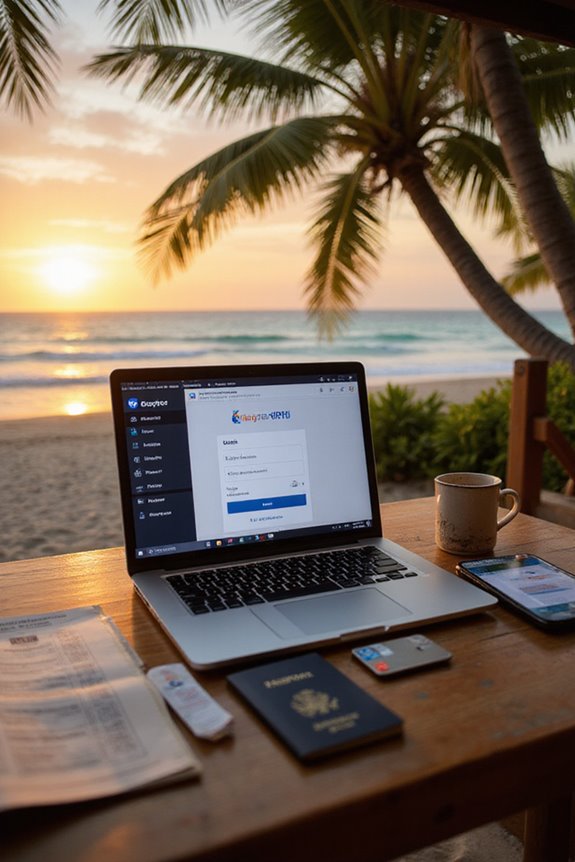
Using a VPN is like having a trusty sidekick in the wild world of the internet, especially when I’m traveling. The VPN benefits are endless! It masks my real IP address, making my online activities tough to track by nosy ISPs or pesky advertisers. Plus, it adds an extra layer of security on public Wi-Fi, protecting my passwords and personal data from hackers lurking in cafés or airports. I can finally enjoy my favorite streaming shows without worrying about geo-blocking. With a VPN, I can access content that’s usually out of reach, like that one social media app banned in certain countries. It’s my go-to solution for staying connected, secure, and free while globetrotting!
Exploring Specialized Browsers for Anonymity
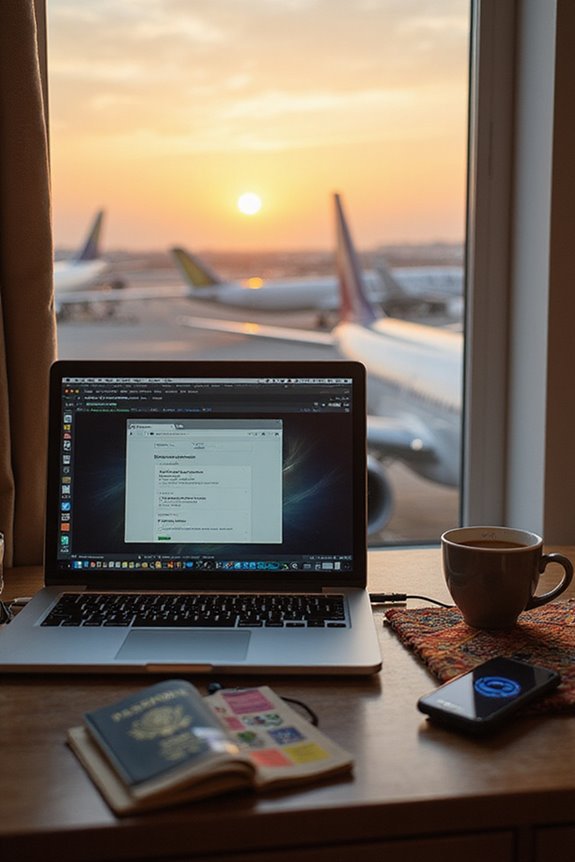
While I’m wandering through foreign lands, the last thing I want is someone peeking over my digital shoulder. That’s where specialized browsers come in handy. The Tor Browser, with its onion routing, keeps my data super secure, though it can slow my connection. For a smoother experience, I turn to the Brave Browser, which blocks ads and trackers while letting me use Tor for extra privacy. Epic Browser is my go-to for quick browsing, thanks to its built-in proxy support, though I miss some extensions. Waterfox features like automatic data clearing are great for keeping my sessions private. Plus, GNUnet privacy helps me communicate securely. With these tools, I can explore without worries!
Important Safety Considerations for Travelers

Exploring new places is exciting, but it can also be a bit nerve-wracking when it comes to safety. I’ve learned that travel security isn’t just about physical safety; it’s essential to have cyber awareness too. When using public Wi-Fi, I always remember that it can expose my sensitive data. So, I never log into banking apps on unsecured networks and always verify network names with staff. Plus, I swear by VPNs to encrypt my data. Keeping an eye on my accounts for unauthorized transactions is a must—scams are everywhere! I keep my valuables hidden and stay aware of my surroundings. Just a little caution goes a long way in ensuring a safe, enjoyable trip!
Frequently Asked Questions
Can I Use Free VPNS to Access Blocked Websites?
I’ve tried free VPN options to access blocked websites, but they often come with significant limitations. Weak security, slow speeds, and unreliable connections can make it frustrating and risky to rely on them.
Are There Risks in Using Public Wi-Fi With VPNS?
Steering through the digital seas can be treacherous. While using VPNs enhances security on public networks, risks still linger. I’ve learned to remain cautious, as not all VPNs shield against every threat lurking in the shadows.
How Do I Choose a Reliable Proxy Server?
When I’m choosing a reliable proxy server, I consider the proxy server types and their features. I look for speed, anonymity, and a good reputation to guarantee my online activities are secure and efficient.
Will Accessing Blocked Websites Violate Local Laws?
You know, I once stumbled upon a site I thought was harmless, only to realize the legal implications of accessing it! Always check regional restrictions first—what’s okay in one place could land you in trouble elsewhere.
Can Browser Extensions Affect My Device’s Performance?
Yes, browser extensions can impact your device’s performance. I’ve noticed that some extensions slow down browser speed. It’s essential to check extension compatibility and regularly review which ones I really need to keep.

